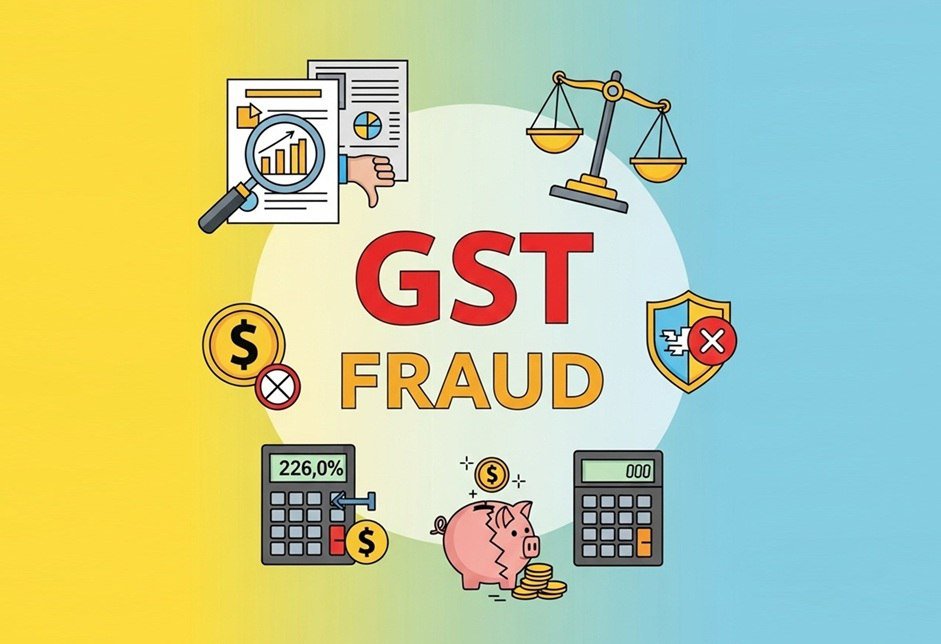Moradabad | Special Correspondent: A massive Goods and Services Tax (GST) fraud, potentially one of India’s largest, has come to light following a series of investigations by the State Tax Department. Preliminary findings suggest that an organized network has been manipulating Input Tax Credit (ITC) claims for over five years, with the total value of the fraud now estimated to have crossed ₹50,000 crore.
Scam Exposed After Seizure of Two Trucks in Moradabad
The investigation began when the State Tax Department’s mobile enforcement team in Moradabad seized two trucks carrying iron scrap. A review of the accompanying documents revealed suspicious details. Upon tracing the mobile numbers listed in the records, investigators discovered that 122 shell companies were registered using just two mobile numbers, while three email IDs were used to set up an additional 22 firms. Authorities found that these firms were involved in fictitious transactions amounting to crores of rupees, falsely claiming ITC despite no real commercial activity taking place.
Fake PAN Cards and Phantom Firms at the Core
According to department sources, the perpetrators used PAN cards issued in the names of individuals with no connection to business.
These identities were exploited to register companies and generate fake invoices to claim ITC.
Tax advocates noted that during the early implementation phase of Central GST, lax physical verification norms allowed thousands of fraudulent registrations to go unchecked.
Tax lawyer Rajeev Johri explained, “The registration process has now become far stricter. It can take up to two or three months for a new firm to be approved, and in many cases, applications are rejected and must be resubmitted due to enhanced scrutiny.”
Widespread ITC Misuse Under Investigation
A Special Investigation Team (SIT), along with State Tax and Central agencies, is now conducting an in-depth probe into the network’s operations.
Initial findings estimate that over ₹2,000 crore worth of fake ITC has already been claimed, though officials believe the actual figure may be several times higher.
R.A. Seth, Additional Commissioner (Special Investigation), stated, “The scale exposed so far is only the tip of the iceberg. A deeper probe could push the total fraud value beyond ₹50,000 crore.”
Network of Companies Operating for Nearly Half a Decade
Investigators believe that the network was established four to five years ago, using shell companies registered with falsified documents. The syndicate allegedly generated fake invoices and e-way bills to create the illusion of large-scale trade, enabling them to claim illegal tax credits.
Chartered Accountant Abhinav Agarwal observed, “By portraying diverse business activities, the group legitimized tax evasion through fraudulent ITC claims. This is a clear example of systemic, organized financial fraud.”
Experts Call for Stronger Digital Oversight
Tax and financial experts argue that such scams can only be prevented through real-time data integration, PAN-linked transaction tracking, and AI-based monitoring of GST activities. Tax consultant Gaurav Gupta emphasized, “Unless registration and transaction verification become fully automated, such organized networks will continue to exploit loopholes in India’s tax system.”


